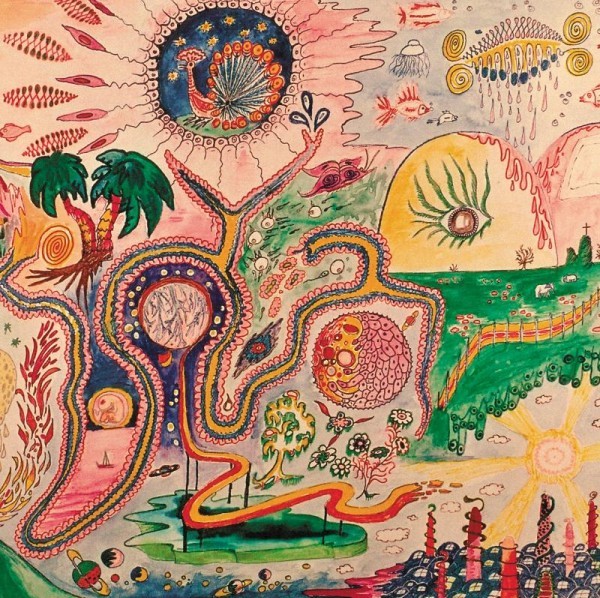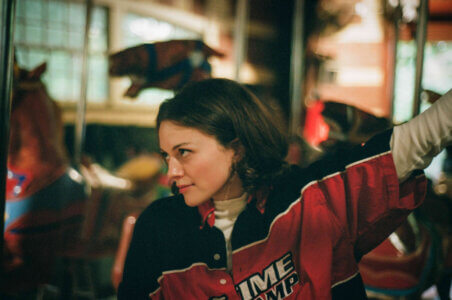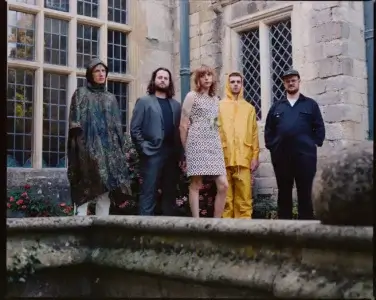
4
Wondrous Bughouse
Youth Lagoon
In 2011, the cool indie kids went berserk over Youth Lagoon’s The Year of Hibernation. Made on a computer in his friend’s bedroom, Trevor Powers created an album that sounded fresh and unique to the other synth-pop being put on the market. For his new album Wondrous Bughouse, Youth Lagoon trades the bedroom for a professional studio and producer Ben Allen (Animal Collective), and loses almost everything that made his debut album a success. Overall, Wondrous Bughouse seems forced and over-calculated, resulting in an album that sounds like it was made for aliens and heavy-acid takers everywhere.
The album kicks off with the atmospheric “Through the Mind and Back”, your standard expected two-minute album intro that all bands seem to be doing now, which are seemingly becoming more and more pointless. The first proper song is “Mute”, which showcases some uplifting vibes, however the lyrics are nearly impossible to make out due to some strange filter Trevor Powers adds to his voice that sounds as if someone is causing him physical pain underwater. Vocals aside, “Mute” is a multi-layered track with a different sound to pick up on with every listen and for what it’s worth is one of the better songs on the album.
The vocals on “Attic Doctor” have been manipulated so much that nothing on this track sounds like it’s from Earth. Whoever can make out the words to this song deserves some kind of a reward, unless the lyrics actually are “Babies at grocery stores have rabies”. Trevor Powers stuffs these four minutes with countless attempts to be “experimental”, to the point where the song becomes devoid of any feeling and the listener is left wondering why the song was even made. It’s hard to see this track translating well into a live performance, unless Youth Lagoon takes up a residency at the Mos Eisley Cantina playing to his primary audience.
Next on Wondrous Bughouse is “The Bath”, a song potentially named after the place where Trevor Powers recorded it. This might be the low point of the album with no standout instrumental, an absent melody, and more incomprehensible vocals. Someone should have told Powers that recording a song underwater rarely yields good results.
This sub-standard start to the album slowly improves on the next two tracks “Pelican Man” and “Dropla”. “Pelican Man” could have easily come off of MGMT’s Congratulations and, vocals aside, is an enjoyable listen with pleasant sounding synths. The song works off of a keyboard driven 4-note progression to create one of the more uplifting tracks in the Youth Lagoon repertoire.
“Dropla” is the most listenable song on the album, and also provides one of the odd times where the vocals are actually somewhat audible. The fact that the lyrics often make no sense doesn’t get in the way of the surprising catchiness to the song, and is the most single-worthy of these ten songs. “Dropla” also features as close as you’ll get to actual emotions on the record, with Powers announcing “you weren’t there when I needed you” as the drums keep rising and a sense of excitement enters a Youth Lagoon song for the first time since 2011.
These high points unfortunately don’t last long. “Third Dystopia” resembles what working at a Kryptonite mine probably sounds like. Even though the song boasts more vocals than any other song on the album, it sounds the least like music made by human beings due to the ridiculous filters and effects Powers continues to put on his voice. Album closer “Daisyphobia” introduces Trevor Powers in a new voice coming from a different galaxy, and might serve as a preview as to what planet his next album will sound more like. Once the vocals stop, the song goes into three minutes of repeated keys and atmospheric noises with no real sense of direction or endpoint to them, until they strangely come to an abrupt halt.
Experimental music is supposed to take you by surprise and open your mind to new sounds and song formulas. Wondrous Bughouse can’t qualify as an experimental album because there’s nothing here that you haven’t heard before. A lot of the time Trevor Powers sounds like he’s just being weird for the sake of being weird, with no motive behind the music or conclusions to be drawn as to a purpose behind what his art represents. Where The Year of Hibernation was exciting in its creativity, there’s nothing new on this album, and if anything Youth Lagoon just sounds weirder. If Trevor Powers aimed to create an album for workers on the Enterprise to unwind to, he may have succeeded, however for those of us still stuck on Earth, we’ll have to wait for the next Youth Lagoon album to find something original in his music again.
-Stewart Wiseman
Latest Reviews
Tracks
Related Albums
Related News
Advertisement
Looking for something new to listen to?
Sign up to our all-new newsletter for top-notch reviews, news, videos and playlists.









